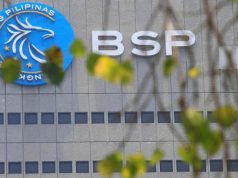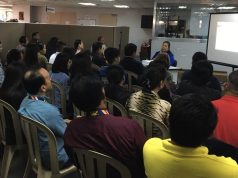MANILA – The Philippine economy is poised for solid growth in 2018, arising from, among others, the impact of the TRAIN law on government and individuals’ spending and the influx of more investments arising from the reputational boost passage of the tax reform package will bring.
Because of this view, First Metro Investment Corporation (FMIC) has forecast economic growth of 7% to 7.5% in 2018. It sees inflation keeping its level per government target of 2 to 4 percent.
In an economic briefing Thursday, FMIC said passage of the Tax Reform for Acceleration and Inclusion (TRAIN) will be a big factor in attainment of robust economic growth in 2018.
FMIC president Rabboni Francis Arjonillo said one stimulus or trigger is the bigger government fund for infrastructure as a result of TRAIN, something which will directly benefit Filipinos.
Second, the tax cuts or reductions in personal income tax, resulting in bigger take-home pay, will put more money in the hands of ordinary Filipinos to spend–again, good for the economy.
Third, the international creditors view TRAIN as an indication of fiscal responsibility, i.e., the nation does not go into needless debt to finance its expenditures.
Because of this, foreign direct investments in the country, which started to grow in 2017, could rise even further, said FMIC.
In all, according to economist Victor Abola of the University of Asia and the Pacific, TRAIN is good for the country and it will not necessarily be disadvantageous to the poor.
He noted the cash transfers that the Department of Finance had ensured for the poorest 10 million families, to compensate for the impact of fuel excise taxes on those sectors who will not benefit from income tax rate cuts.
Abola also believes any price hikes can be absorbed by the economy.









